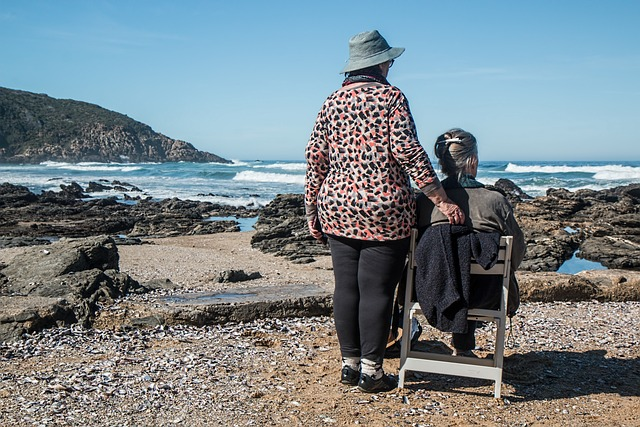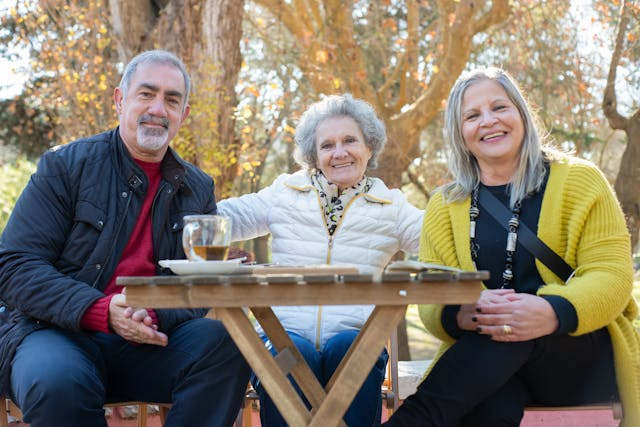Welcome to our comprehensive guide on Residential Aged Care Facility in Australia! Whether you’re exploring options for yourself or a loved one, navigating the world of aged care can be complex. We’re here to provide detailed insights and information to help you make informed decisions. Let’s delve deeper into each aspect:
1. What is a Residential Aged Care Facility?

A Residential Aged Care Facility, commonly known as a nursing home or residential aged care home, is designed to provide comprehensive care and support for older Australians who require assistance with daily activities, health treatments, and emotional well-being.
A residential aged care facility should offer a range of services, including personal care such as bathing, dressing, and grooming, nursing services delivered by qualified professionals, and emotional support from caring staff members.
Residents in these facilities may have varying levels of care needs, from basic assistance with everyday tasks to more intensive clinical care for conditions like dementia or palliative care.
2. Types of Aged Care Services

When considering aged care options, it’s essential to understand the range of services available to meet varying needs and preferences. Here’s a detailed look at the types of aged care services offered in Australia:
Personal Care:
Residential aged care facilities provide personalized care plans tailored to each resident’s needs. This may include assistance with mobility, medication management, and hygiene routines.
Nursing Services:
Qualified nurses are available round-the-clock to provide clinical aged care, administer medications, monitor health conditions, and coordinate with healthcare professionals.
Emotional Support:

Aged care workers play a vital role in providing aged care with emotional support, companionship, and social engagement to residents, promoting overall well-being and mental health.
Palliative Care:
For residents with life-limiting illnesses, palliative care focuses on pain management, symptom relief, and ensuring a dignified and comfortable end-of-life experience.
3. Understanding Fees and Funding

Navigating the fees and funding options associated with aged care facilities is a crucial aspect of planning for yourself or a loved one’s care. Let’s delve deeper into the various fees and funding sources for aged care available:
Means Tested Care Fee:
This fee is determined based on an individual’s income, assets, and financial situation. It is designed to ensure that those with higher means contribute proportionally more towards the cost of their care. The means-tested care fee helps subsidize the overall cost of care for residents in aged care facilities, making it more affordable for those with limited financial resources.
Basic Daily Care Fee:
The basic daily care fee covers essential services and living expenses within the residential aged care facility. This fee contributes to accommodation, meals, laundry, utilities, and basic care services such as assistance with daily tasks. It is a standard fee that all residents are required to pay, regardless of their income or assets.
Additional Services Fee:
Some aged care facilities offer optional additional services beyond the basic care provided. These services may include access to specialized therapies such as physiotherapy, occupational therapy, speech therapy, or podiatry. The additional services fee allows residents to access these tailored services based on their individual needs and preferences, adding value to their overall care experience.
Government Assistance:

The Australian government provides financial support and subsidies to eligible individuals accessing aged care services. This assistance aims to ensure that all Australians have equitable access to high-quality care, regardless of their financial situation. Government subsidies may cover a portion of the care costs, reducing the financial burden on individuals and their families.
Cost Considerations:
When planning for aged care, it’s essential to consider the total cost of care, including accommodation fees, care fees, and any additional services fees. Understanding the breakdown of fees and funding sources can help individuals and families budget effectively and make informed decisions about their care options.
Eligibility Criteria:
Eligibility for government assistance and subsidies is determined through assessments such as the ACAT (Aged Care Assessment Team) assessment. This assessment evaluates an individual’s care needs, living arrangements, and financial circumstances to determine eligibility for subsidies and funding support.
Continuity of Care:

It’s important to note that as care needs evolve over time, the fees and funding arrangements may also change. Regular reviews and assessments ensure that individuals continue to receive appropriate care and support while managing the associated costs effectively.
Understanding the intricacies of fees, funding sources, and eligibility criteria is essential for making informed decisions about aged care options.
By working closely with aged care providers, financial advisors, and government agencies, individuals and their families can navigate the financial aspects of aged care with confidence and peace of mind.
4. Quality of Care and Services
Accreditation and Standards: Residential aged care facilities are required to meet stringent accreditation standards set by the Aged Care Quality and Safety Commission.
These standards encompass aspects such as safety, quality of care, staff training, infection control, and resident rights protection.

Continuous Supported Care: Facilities offer 24/7 support from trained staff members who assist residents with daily tasks, health monitoring, medication management, and emergency response.
Health Treatments and Therapies: Aged care facilities may provide access to a range of health treatments and therapies, including physiotherapy, occupational therapy, speech therapy, and mental health support, tailored to individual needs.
5. Living Arrangements and Amenities
Accommodation Options:

Residents can choose from various accommodation options, including single rooms, shared rooms, or suites, based on preferences and availability. There are some providers with residential aged care services available.
Social Activities and Programs:

Facilities organize a diverse range of social activities, recreational programs, and cultural events to promote social interaction, mental stimulation, and overall well-being.
Laundry and Housekeeping Services:
Aged care facilities often provide laundry services, housekeeping, and maintenance, ensuring a clean, comfortable, and safe environment for residents.
6. Accessing Aged Care Services
ACAT Assessment:
An Aged Care Assessment Team (ACAT) conducts assessments to determine an individual’s care needs, eligibility for residential aged care, and appropriate level of care.
Short-Term Stay and Respite Care:
Facilities offer short-term stays for respite care, providing temporary relief for caregivers and allowing residents to experience the services and amenities of the facility on a trial basis.
7. Government Regulation and Support

Aged Care Act and Regulation:
The Aged Care Act outlines the rights, responsibilities, and standards of care for aged care facilities, ensuring regulatory compliance, quality assurance, and resident protection.
Funding and Subsidies:
The Australian government or the NDIS provides financial support, subsidies, and grants to aged care facilities, enabling them to deliver high-quality care, maintain infrastructure, and meet operational costs.
Re.Connect Support Services as an Aged Care Service Provider
Re.Connect Support Services is a dedicated aged care service provider committed to delivering high-quality and compassionate care to older adults in need. With a focus on enhancing the well-being and independence of seniors, Re.Connect offers a range of services tailored to meet individual needs and preferences.
From personal care assistance and nursing services to emotional support and palliative care, Re.Connect strives to create a nurturing and supportive environment where residents can thrive and live with dignity.
With a team of dedicated professionals and a strong emphasis on person-centered care, Re.Connect Support Services stands as a trusted partner in aged care, providing comprehensive support, advocacy, and community engagement for older adults and their families.
Not-for-Profit and Public Sector Organizations:
Many aged care facilities are operated by not-for-profit organizations or public sector entities, prioritizing resident well-being and community engagement over profit margins.
8. Planning for the Future
Advance Care Planning (ACP) is a vital aspect of residential aged care facility is that they should empower individuals and their families to make informed decisions about future care, medical preferences, and end-of-life wishes.
This proactive approach not only ensures that an individual’s values and wishes are respected but also eases the decision-making process during critical times.

Moreover, family members, caregivers, and community support networks play a pivotal role in providing holistic care, advocacy, and emotional support, creating a supportive environment for residential aged care services.
9. Conclusion

Choosing a residential aged care facility requires thorough research, assessment of individual needs, and consideration of financial, social, and emotional factors. By understanding the range of services, funding options, quality standards, and regulatory framework, individuals and families can make informed decisions that prioritize dignity, comfort, and quality of life for older Australians.
We hope this detailed guide has provided valuable insights and guidance for navigating the complexities of aged care facilities in Australia.
Each person’s journey is unique, and finding the right care and support is key to maintaining a fulfilling and dignified life in later years

